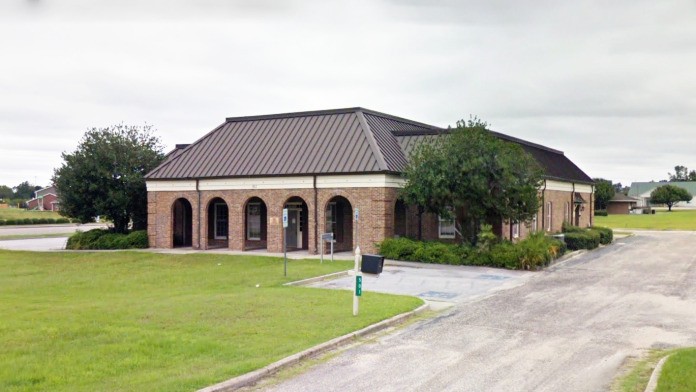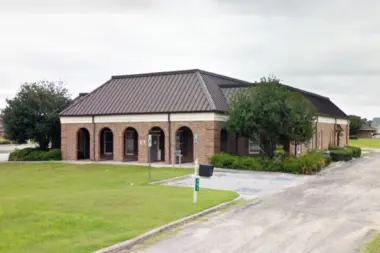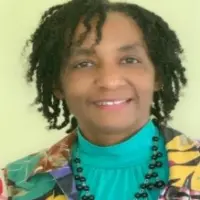About Waccamaw Center for Mental Health
Serving the residents of Kingstree, South Carolina, and Williamsburg County, the Waccamaw Center for Mental Health provides personalized mental healthcare and addiction treatment to adults and youth. Since 1967, they’ve been making it easier for people to get the care they need, right in their own communities. This location offers adult and adolescent outpatient services as well as school-based programs.
School-Based Services
Their School-Based Services is the largest program of its type in the state. These services offer support for children and families who are experiencing behavioral health challenges. By offering school-based programs, Waccamaw removes some of the barriers to treatment and increases access to support.
Personalized Treatment for Every Step of Recovery
Committing to recovery can feel overwhelming, but the outpatient treatment programs here are designed to help you through each step. Individual therapy is a key part of the process. Meeting with a qualified therapist gives you a safe, judgement free space to talk about your struggles.
Group therapy is another important part of recovery. It brings people together who are facing similar challenges. It’s a supportive environment, where you can find strength in knowing you’re not alone.
Family therapy helps strengthen the relationships that matter most in your recovery journey. Addiction affects more than just you. It touches your family and loved ones. Family therapy can help rebuild trust and provide the support system you need to stay on track.
Intensive Outpatient Treatment
When traditional outpatient therapy just isn’t enough, an intensive outpatient program (IOP) offers a deeper level of support without needing hospitalization. If you’re struggling to manage daily life while working on recovery, this program could work for you.
Standard outpatient treatment typically takes place once a week. The IOP includes more therapy visits and more group sessions each week. More time in therapy can help you feel stronger and more capable, making it easier to keep on track with recovery.
Building Life Skills for Recovery
Recovery isn’t just about overcoming addiction. It’s also about addressing the co-occurring disorders like depression and anxiety that can keep you from enjoying healthy activities.
That’s where psychosocial rehabilitation services (PRS) play a crucial role. Without life skills or the confidence to build relationships, you might shy away from things like socializing, taking care of yourself, or even enjoying trips to nearby Myrtle Beach.
Living in Kingstree offers a great environment for recovery, and getting help at Waccamaw Center for Mental Health can help you take healthy steps out into a world full of opportunities.
Latest Reviews
Rehab Score
Gallery


Accepted Insurance
Other Forms of Payment
Medicaid is a state based program that helps lower-income individuals and families pay for healthcare. Medicaid covers addiction treatment so those enrolled can use their coverage to pay for rehab. When a program accepts Medicaid the client often pays very little or nothing out of their own pocket.
Private insurance refers to any kind of healthcare coverage that isn't from the state or federal government. This includes individual and family plans offered by an employer or purchased from the Insurance Marketplace. Every plan will have different requirements and out of pocket costs so be sure to get the full details before you start treatment.
Self-pay involves paying for treatment out of your own pocket. You can use savings or credit, get a personal loan, or receive help from family and friends to fund your treatment. If you don't have insurance or your insurance plan doesn't cover a specific program, self-pay can help ensure you still get the care you need.
Medicare is a federal program that provides health insurance for those 65 and older. It also serves people under 65 with chronic and disabling health challenges. To use Medicare for addiction treatment you need to find a program that accepts Medicare and is in network with your plan. Out of pocket costs and preauthorization requirements vary, so always check with your provider.
Addiction Treatments
Levels of Care
Outpatient Programs (OP) are for those seeking mental rehab or drug rehab, but who also stay at home every night. The main difference between outpatient treatment (OP) and intensive outpatient treatment (IOP) lies in the amount of hours the patient spends at the facility. Most of the time an outpatient program is designed for someone who has completed an inpatient stay and is looking to continue their growth in recovery. Outpatient is not meant to be the starting point, it is commonly referred to as aftercare.
Treatments
Many of those suffering from addiction also suffer from mental or emotional illnesses like schizophrenia, bipolar disorder, depression, or anxiety disorders. Rehab and other substance abuse facilities treating those with a dual diagnosis or co-occurring disorder administer psychiatric treatment to address the person's mental health issue in addition to drug and alcohol rehabilitation.
Mental health rehabs focus on helping individuals recover from mental illnesses like bipolar disorder, clinical depression, anxiety disorders, schizophrenia, and more. Mental health professionals at these facilities are trained to understand and treat mental health issues, both in individual and group settings.
Programs
Adult rehab programs include therapies tailored to each client's specific needs, goals, and recovery progress. They are tailored to the specific challenges adult clients may face, including family and work pressures and commitments. From inpatient and residential treatment to various levels of outpatient services, there are many options available. Some facilities also help adults work through co-occurring conditions, like anxiety, that can accompany addiction.
Recovery is most successful when clients feel accepted and validated by their peers and treatment providers. Facilities that offer LGBTQ-inclusive programming are committed to creating a safe space where everyone can grow and recover without fear of judgment or discrimination. They will have dedicated policies in place to create a safe and supportive environment that fosters free expression.
Young adulthood can be an exciting, yet difficult, time of transition. Individuals in their late teens to mid-20s face unique stressors related to school, jobs, families, and social circles, which can lead to a rise in substance use. Rehab centers with dedicated young adult programs will include activities and amenities that cater to this age group, with an emphasis on specialized counseling, peer socialization, and ongoing aftercare.
Clinical Services
Cognitive Behavioral Therapy (CBT) is a therapy modality that focuses on the relationship between one's thoughts, feelings, and behaviors. It is used to establish and allow for healthy responses to thoughts and feelings (instead of unhealthy responses, like using drugs or alcohol). CBT has been proven effective for recovering addicts of all kinds, and is used to strengthen a patient's own self-awareness and ability to self-regulate. CBT allows individuals to monitor their own emotional state, become more adept at communicating with others, and manage stress without needing to engage in substance abuse.
Experiential therapy is a form of therapy in which clients are encouraged to surface and work through subconscious issues by engaging in real-time experiences. Experiential therapy departs from traditional talk therapy by involving the body, and having clients engage in activities, movements, and physical and emotional expression. This can involve role-play or using props (which can include other people). Experiential therapy can help people process trauma, memories, and emotion quickly, deeply, and in a lasting fashion, leading to substantial and impactful healing.
Group therapy is any therapeutic work that happens in a group (not one-on-one). There are a number of different group therapy modalities, including support groups, experiential therapy, psycho-education, and more. Group therapy involves treatment as well as processing interaction between group members.
In individual therapy, a patient meets one-on-one with a trained psychologist or counselor. Therapy is a pivotal part of effective substance abuse treatment, as it often covers root causes of addiction, including challenges faced by the patient in their social, family, and work/school life.
Trauma therapy addresses traumatic incidents from a client's past that are likely affecting their present-day experience. Trauma is often one of the primary triggers and potential causes of addiction, and can stem from child sexual abuse, domestic violence, having a parent with a mental illness, losing one or both parents at a young age, teenage or adult sexual assault, or any number of other factors. The purpose of trauma therapy is to allow a patient to process trauma and move through and past it, with the help of trained and compassionate mental health professionals.
Staff

Jackie Brown
Executive Director
Contact Information
501 Nelson Boulevard
Kingstree, SC 29556




